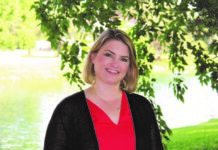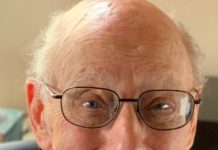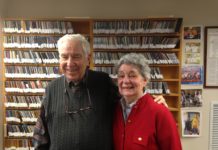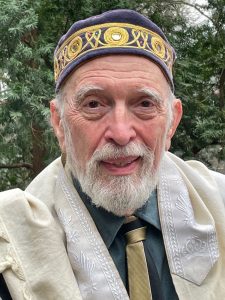
Hazzan Jack Kessler is the frontman for Atzilut, a nine-member ensemble that performs Hebrew and Arabic music.
Kessler is the singer who specializes in the Hebrew side of that partnership. His fellow frontman, Maurice Chedid, is the master of Arabic classical music. Since forming in the early 1990s, the group has performed at the United Nations, the New York Folk Festival and the Copenhagen Opera House in Denmark. It once played for 8,000 people near the U.S.-Mexico border in El Paso, Texas.
Kessler, a Mount Airy resident, is aware of how this looks. It’s a political message: If Jews and Arabs can sing together, they can live together, too. Except that is not quite the message. It’s more about “making a heart statement that is deeper than politics,” Kessler said.
“Peace can’t be legislated from above by governments. It has to be desired by the people,” he said. “It has to come from people’s hearts.”
For using song to pursue that goal, Kessler was honored on March 18 at Drexel University’s Mandell Theater on Chestnut Street. The school’s Mediterranean ensemble played songs in the cantor’s honor. Performers included “Kessler’s musical collaborators,” like Bruce Kaminsky, the director of the Mediterranean ensemble, piano player Samuel Heifetz and trumpet and flute player Stan Slotter, among others.
“He’s a mensch,” said Kaminsky of Kessler. “And he’s done his best to bring peace to the world through song, and he deserves credit for that.”
Kessler has pursued that goal on big stages. But he also has pursued it on stages as small as synagogues and Jewish community centers. The structure of each program is to alternate Hebrew and Arabic songs before blending them at the end.
“One way of looking at this programming concept is to demonstrate that we have individual identities and also areas of commonality,” the 79-year-old said.
The cantor grew up in a “traditional Jewish home,” as he described it. His parents escaped the Nazis by immigrating to the United States in 1941. Kessler’s father was a “Hungarian-trained rabbi,” as the son put it. So as his son, Kessler “always had that in my bones.”
During his teenage years in the 1950s, or “the Joan Baez era of folk music,” as Kessler remembered it, he would do the folk thing and just go out with a guitar and play. But the future cantor eventually realized that “what really rang true for me was the desire to do Jewish spiritual singing.”
Even today, Kessler, who attends P’nai Or Jewish Renewal Congregation, has no rational explanation for that desire. He did enjoy singing with his family around the Shabbat dinner table. But besides that, he cannot point to a specific motivation. Something, as he put it, “just clicked.” So, the young man studied to become a cantor and then served congregations for 20 years. But at some point during that era, something else clicked: Kessler wanted his music to transcend the walls of his sanctuary.
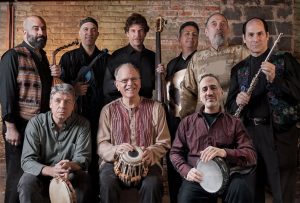
The cantor came to view modern Jews as “tumbleweeds who have lost our roots because of the destruction of the 20th century.” He wanted to re-establish those roots by helping Jews rediscover their spirituality. For a cantor, this meant bringing “passion back into Jewish life” through song. Jews should be emotionally open when expressing their spirituality, according to Kessler. They should not be afraid to sing.
“I don’t look at a service as something that is performed by the leaders, but as an interactive, highly participatory process that involves a leader and congregation dynamic that produces emotional energy,” he said.
One of the projects that emerged from this realization was Atzilut. Another was developing a cantorial training program for ALEPH, or the Alliance for Jewish Renewal, in Philadelphia. Kessler started building the program in 2000 and still works with Ashkenazi cantorial students to help them understand their heritage. But he also exposes them to non-Ashkenazi music. Kessler’s process includes vocal coaching and “training in spiritual expression,” as he describes it.
He said the cantorial training program might be the most important project of his life.
“It’s about a certain self-trust to being open to something larger than us that comes through,” he added.
According to Kaminsky, Kessler is still open to something larger than himself when he performs. And it usually comes through.
“Jack’s extremely passionate, high energy … and he’s no kid anymore,” Kaminsky said. “He’s out there as a performer.” ■



